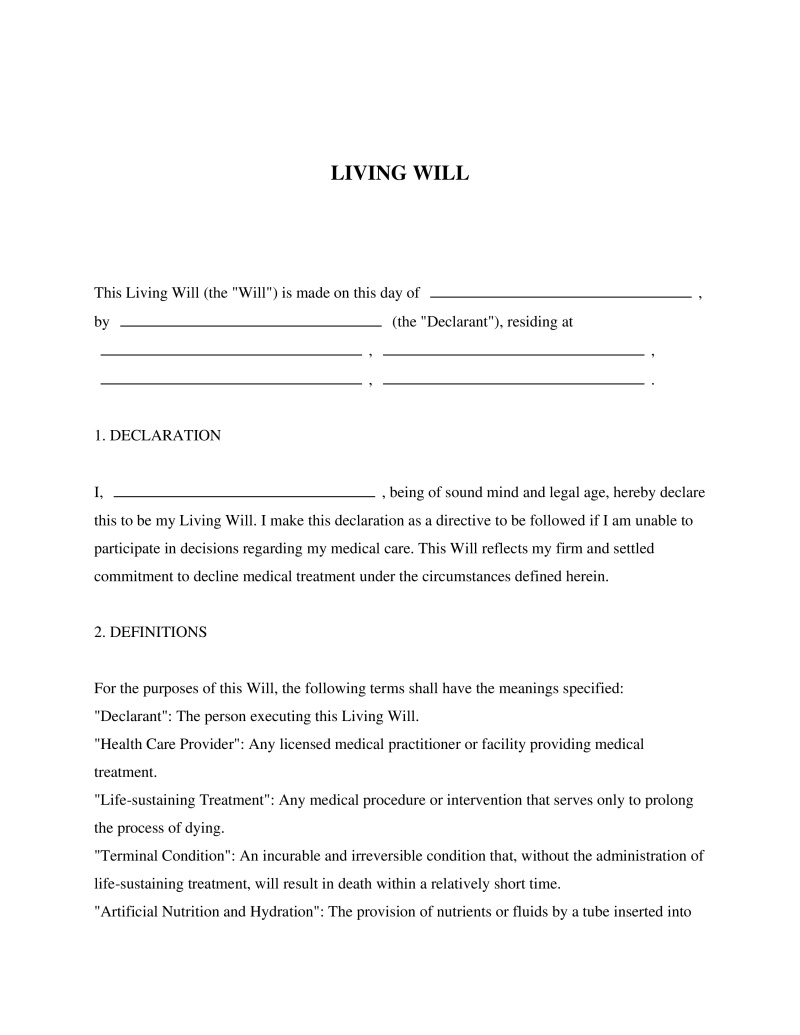A Living Will is a legal document that allows individuals to specify their medical treatment preferences in case of incapacitation, ensuring their healthcare decisions are respected and legally upheld across all U.S. states.
Full Name
Please provide your legal name.

Table of Contents
What is a Living Will?
A Living Will, distinct from other forms of advance directives, is a legal document that outlines a person's wishes regarding medical treatment in scenarios where they are unable to communicate these decisions themselves. It becomes pivotal in end-of-life care, ensuring that healthcare providers adhere to the individual's preferences concerning life-sustaining treatments or interventions. Essential for adults of all ages, it addresses unforeseen circumstances where critical decisions about medical care need to be made without the individual's direct input. Crafting a Living Will provides peace of mind, not only for the person it concerns but also for their family and healthcare team, by clearly stating the preferred medical approaches in various situations.
Key Features
Important Provisions
- Definition of terms used within the document to clarify what constitutes life-sustaining treatment versus palliative care.
- Identification of a health care proxy or durable power of attorney for health care decisions.
- Specific instructions on medical treatments that are desired or refused, including conditions under which each applies.
- Signatures from the document creator and required witnesses or a notary public to ensure legal validity.
Pros and Cons
Pros
- +Empowers individuals to maintain control over their medical treatment even when they cannot communicate their wishes directly.
- +Minimizes the burden on family members by providing clear instructions on healthcare preferences.
- +Helps avoid unnecessary and potentially unwanted medical interventions, aligning care with personal values.
- +Facilitates discussions among family and healthcare providers about end-of-life care preferences.
- +Streamlines legal processes related to healthcare decision-making in critical situations.
Cons
- -May not cover every possible medical scenario, leading to ambiguity in unaddressed situations.
- -Requires regular updating to ensure it reflects current wishes and advancements in medical treatments.
- -Differences in state laws can affect its enforceability or necessitate additional documentation.
Common Uses
- Specifying desires regarding the use of life-support systems in cases of terminal illness or severe injury.
- Declaring preferences for or against specific medical procedures like tube feeding or mechanical ventilation.
- Guiding emergency responders and healthcare providers in critical care situations when immediate family cannot be reached.
- Facilitating discussions within families about potential end-of-life care needs and preferences.
- Establishing parameters for pain management and palliative care to ensure comfort in final stages of life.
- Providing a legal basis for designated healthcare proxies to make informed decisions on behalf of the patient.
Frequently Asked Questions
Do you have a question about a Living Will?
Example questions:
Not the form you're looking for?
Try our legal document generator to create a custom document
Community Discussion
Share your experience and help others
Legal Notice: Comments are personal opinions and do not constitute legal advice. Always consult a qualified attorney for matters specific to your situation.
Comments (0)
Leave a Comment
No comments yet. Be the first to comment!